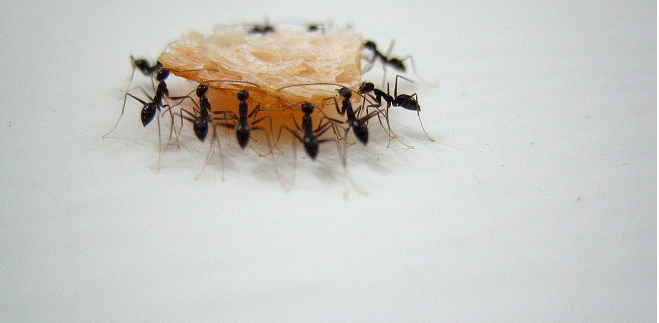What Ants Can Teach Us About Teamwork

Ants – they seem like the most insignificant of critters. Truth is, they’re highly intelligent – and we can learn a thing or two from them…
An ant’s lifestyle is organised around their colony. Their colony is a family unit, which is eusocial -the term ‘eusociality’ refers to the highest level of order, organisation and structure of animal sociality. The colony has castes that accompany certain roles and divisions in responsibilities.
Ants have the ability to organize their colonies, or supercolonies – across enormous expanses of land. One of the largest ant supercolonies in the world is located beneath the Mediterranean, stretching over 6,004km. Another supercolony located on The Ishikari coast of Japan, contained an estimated 306 million ants working in conjunction with one another within 45,000 interconnected nests underground.
The human race considers itself far intellectually superior to any species, ants included – however whilst ants are establishing supercolonies across Southern Europe… it seems we have trouble cooperating and compromising within in a partnership let alone a team of diverse individuals. The attachment below – is of a video in which a colony of ants links together during a flood, using their bodies to create a raft and ensure the safety of the colony – which ultimately endured as the destruction subsided.
If an ant can selflessly commit itself to overcoming challenges and purposefully integrate into a supercolony – then why can’t we get the hang of it?
- One of the reasons it’s difficult to work in a team is because of the diversity, differences and outlooks of people within a group. Clashing personalities, beliefs and approaches causes a butting of heads instead of an embrace of our differences and value of a range of perspectives when there is a common goal in mind.
- Another reason, is that lots of us are motivated by self-interest. If the means to reaching a goal don’t accommodate us, then progress is stagnant. We think of the role we play in reaching a common goal within a personal and individual context. Whereas what should be happening is each member of the group approaching a task from the perspective of the whole unit – not doing this stunts the evolution of your work.
- Peruse the team objective selflessly. Pick up the slack if need be, and look out for your teammates instead of attempting to compete or outshine them. Doing so does nothing to contribute in accomplishing the desired outcome other than establish insecurities and an unofficial hierarchy between equals.
The ability to work well within a team – is a severely underrated quality. Accomplishing a goal for yourself as opposed to in a team means there is little to no compromise, negotiation or cooperation – which can make things a lot easier.
In a society that values the accomplishments of a singular idol, we love to place an individual on a pedestal as an example of a superior being – the dedication and commitment of those behind that individual too often ignored.
Public prestige and credence of a team or group is rarely revered – but it certainly should be. As although there is a better system of support, it accompanies more sacrifice, strategic planning and a high level of cohesiveness and balance.

